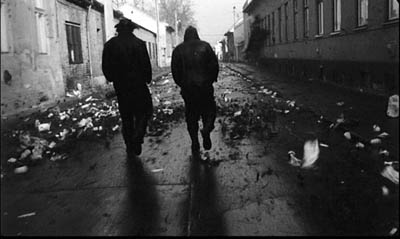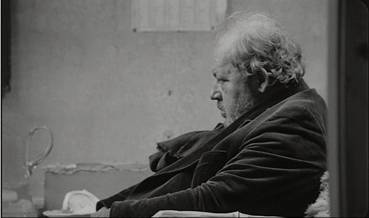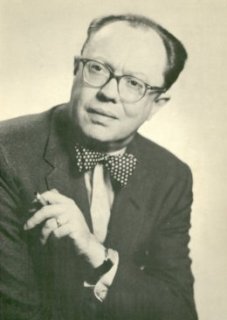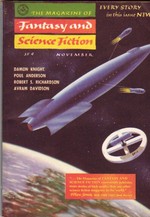The following exchange appeared in Cinema Scope no. 8, September 2001. — J.R.

In the past, when I’ve interviewed filmmakers it’s been at my own initiative — or at least at the initiative of an editor making an assignment. This time, at the Buenos Aires Festival of Independent Film in April 2001, where I was serving on the jury and introducing Béla Tarr at some of his screenings, someone handed me a tape recorder, and Mark Peranson agreed to transcribe the interview afterwards if I would speak to Béla, who’s been a friend ever since Sátántangó. I hope that the casual grammar on both sides of this conversation doesn’t obscure too much of the meaning. (J.R.)
BELA TARR: […] In Sátántangó, we had a set. The doctor’s flat, it was built.
JONATHAN ROSENBAUM: You know, that’s my favorite scene in the film.
TARR: Yes, but it was built! It is artificial, but you don’t feel it in the movie…
ROSENBAUM: Maybe that’s why I like it so much, because it’s in such a small space.
TARR: No, it wasn’t small.
ROSENBAUM: But it feels small in the film.
TARR: Yeah, sure.

ROSENBAUM: Was the actor playing the doctor a professional actor or a nonprofessional? Read more

The following is a one-page story submitted to Anthony Boucher, the editor of The Magazine of Fantasy and Science Fiction, in April 1956, when I was 13, and accepted by him the following month, after a couple of rewrites guided by his suggestions. (The use of the drug “euphorin” was his own idea and invention.) Later that summer, on a family trip to the west coast, we (my parents and one or two of my brothers and I) actually managed to track down Boucher in his Berkeley home (we’d naïvely assumed that the address on his stationary was the magazine’s editorial office) and spent a very pleasant hour or so with him. The story was eventually published in the November 1957 issue (on the last page) and I received a check for $25 for my work. Later the story appeared in Spanish and Japanese translations in foreign editions of the magazine; I still have a copy of each. — J.R.

Now and Then
by Jonathan Rosenbaum
When the time machine started, I realized that I had forgotten to ask the professor its destination. But under the influence of a heavy dose of euphorin, it hardly mattered to me. To escape the tensions of the present, almost everybody I knew was taking the same or similar tranquilizers. Read more
From the May 1981 American Film. This is the third and last of my Resnais interview pieces from this period to be posted on this site . — J.R.



“You know, for all European kids of my age, America was a kind of fairyland,” recalled fifty-eight-year-old Alain Resnais on a recent trip to the United States. “We were born with the idea that there was another kind of country where everything was easy and perfect, like cartoon films, and there was a lot of money and freedom. I remember that when I was ten and I was looking at the French flag, I didn’t feel a thing. But when I was looking at the American flag, my heart was really beating.”
The French director also remembered that in his youth every French child had a distant relative who had gone off to America and was never heard from again. (In his own case, this was a great-grandfather who had disappeared into the wilds of Virginia.) The typical fantasy would be that the missing relative had made a fortune and would one day return to solve every problem. It’s the concept alluded to by the title of — and briefly mentioned by all three leading characters in — Mon Oncle d’Amérique, Resnais’ eighth and most recent feature, and his first major commercial success. Read more







